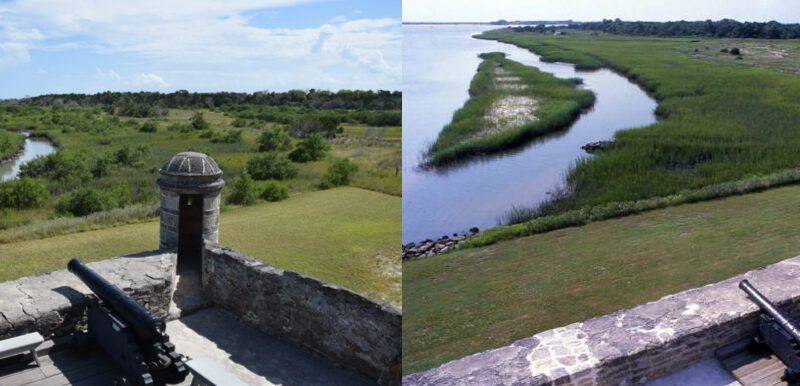
Kyle Cavanaugh in UCLA Newsroom: Florida mangroves reveal complex relationship between climate and natural systems
A new study led by UCLA’s Kyle Cavanaugh of how Florida’s mangroves and salt marshes are affected by changes in climate, both man-made and natural, illustrates the complex interplay between our changing climate and living natural systems.
The paper, which was published in PNAS, found that decades-long, natural climate cycles have determined the northern extent of Florida mangroves for at least the past 250 years. Freeze events that took place approximately every 10 to 30 years caused die-offs, during which mangroves were replaced by salt marshes until warmer trends spurred regrowth.
“We didn’t find evidence that climate change has altered this system to date,” said Cavanaugh, who is an assistant professor of geography and member of the UCLA Institute of the Environment and Sustainability. “But then we used climate model projections to look to the year 2100, and those suggest future warming will increase mangrove suitability.”
